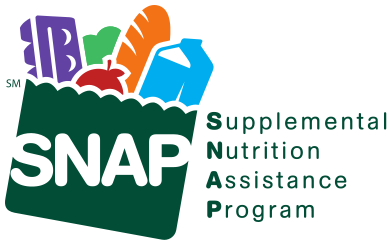

Please read about eligibility before applying for benefits. Application portal is located at the bottom of the page!
EBT Food Assistance Program
The Food Assistance Program helps people with low-income buy healthy food. A food assistance household is normally a group of people who live together and buy food and cook meals together. If your household passes the Food Assistance Program’s eligibility rules, the amount of food assistance benefits you get depends on the number of people in your household and how much money is left after certain expenses are subtracted.
Eligibility Rules
Individuals must pass all eligibility rules to get food assistance benefits. Some of the eligibility rules are:
- Identity – Individuals must show proof they are the person they claim to be. Applicants must provide proof of their identity.
- Work Rules – FAQs – Healthy adults, 18 to 50 years of age, who do not have dependent children or are not pregnant, can only get food assistance benefits for 3 months in a 3-year period if they are not working or participating in a work or workfare program.
- Income and Deductions – Most households must pass a gross income limit less than or equal to 200% of the Federal Poverty Level (FPL). Households with a member disqualified for breaking Food Assistance Program rules, felony drug trafficking, running away from a felony warrant, or not participating in a work program must have gross income less than or equal to 130% of the FPL. Households with a disqualified member must have net income less than 100% of the FPL. Households with people who are age 60 or older, or disabled, must only meet the net monthly income limit. Some household expenses may be subtracted from the total monthly income in the food assistance budget. The budget may subtract for shelter expenses, dependent care, medical expenses, child support paid, utility deductions, and earned income deduction.
- Residency – Individuals must live in the state of Florida.
- Citizenship – Individuals must be a U.S. citizen or have a qualified noncitizen status.
- SSN – Individuals must provide a Social Security Number or proof they have applied for one.
- Child Support Cooperation – Certain individuals must cooperate with the state’s child support enforcement agency to prove a child’s legal relationship to their parent and to get the court to order child support payments.
- Assets – Most food assistance households may have assets such as vehicles, bank accounts, or property and still get help. Households with a disqualified member must meet an asset limit of $2,250 or $3,250 effective October 1, 2014 (if the household contains an elderly or disabled member).
- Change Reporting – Households must report when the total monthly gross income exceeds 130% of the Federal Poverty Level for the household size and when work hours of able bodied adults fall below 20 hours per week when averaged monthly. The household must report these changes within 10 days after the end of the month of the change.
